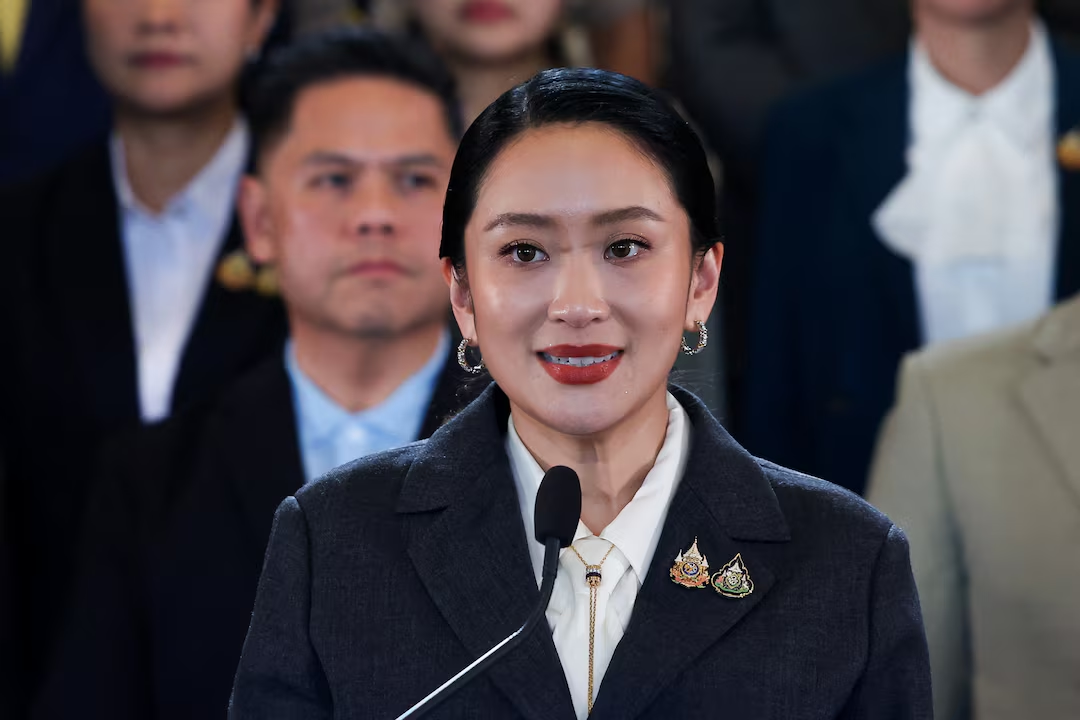Bangkok – Thailand has been thrown into political upheaval after the Constitutional Court removed Prime Minister Paetongtarn Shinawatra from office on Friday, ruling that her controversial phone call with Cambodia’s former leader breached constitutional ethics rules. The landmark verdict brings down the country’s youngest prime minister after just a year in power and plunges the kingdom into a new phase of instability.
In a 6–3 ruling, the court declared that Paetongtarn “lacks the qualifications and possesses prohibited characteristics” as defined under Thailand’s constitution, effectively ending her tenure. The case centered on a leaked phone call with former Cambodian prime minister Hun Sen on June 15, at a time when border tensions between the two neighbors were flaring.
In the recording, Paetongtarn referred to Hun Sen as “uncle” and appeared to criticize her own military for its handling of clashes that had resulted in the death of a Cambodian soldier. The opposition seized on the audio, accusing her of undermining Thailand’s sovereignty and siding with a foreign power during a national security crisis.
Paetongtarn, who assumed office in August 2024 at the age of 38, had been hailed as a fresh face in Thai politics and the latest figure from the influential Shinawatra dynasty to lead the country. Her removal, however, highlights the continuing volatility that has characterized Thailand’s political system, where elected leaders from her family have often clashed with conservative and military-aligned institutions.
The ruling has triggered both political and public backlash. Supporters of Paetongtarn argue that the court ruling was politically motivated, pointing to a long history of judicial interventions against Shinawatra-aligned governments. Meanwhile, opposition parties are pressing for the swift appointment of an interim leader and are calling for snap elections to restore political legitimacy.
The development also carries diplomatic consequences. Relations between Thailand and Cambodia have historically been sensitive, with disputes over territory, migration, and regional influence. Analysts say Paetongtarn’s remarks, while informal, exposed vulnerabilities in how Thai leaders manage cross-border crises, and the controversy may strain bilateral ties further.
For now, Deputy Prime Minister Anutin Charnvirakul has been named acting leader while parliament prepares to select a new prime minister in the coming weeks. But with tensions rising in Bangkok, the removal of Paetongtarn is likely to deepen political divides and spark fresh protests, once again underscoring the fragility of Thailand’s democracy.












Leave a comment